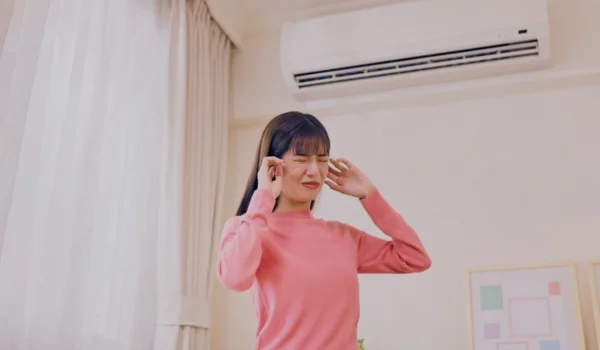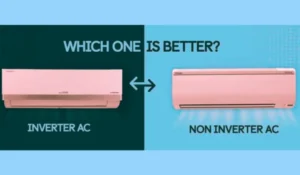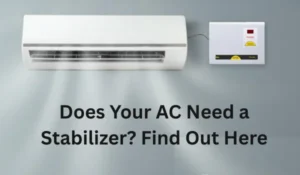As a tech and electronics enthusiast who has worked on dozens of household appliances — especially air conditioners — I’ve come across one common complaint every summer: “My AC is making strange noises. Is it serious?”
If you’re hearing humming, buzzing, hissing, rattling, or clicking from your AC, don’t ignore it. From my own experience, these noises are your AC’s way of crying for help — and catching them early can save you a lot of money and discomfort.
Over the years, I’ve troubleshooted various types of AC noises — from split ACs in modern apartments to older window units in traditional Indian homes. Let me walk you through the most common types of AC noises, what they usually mean, and how I fixed them (or when I had to call a professional).
1. Buzzing Sound – It’s Usually Electrical

What I heard:
One of the first issues I encountered in my own inverter AC was a persistent buzzing sound every time I turned it on. It wasn’t loud, but it kept coming from the outdoor unit.
Cause:
- Faulty capacitor
- Loose wiring
- Malfunctioning compressor
- Electrical relay problems
My Fix:
I shut off the power and opened the outdoor unit. A capacitor on the PCB board had bulged and leaked slightly. I replaced it with a compatible one and the buzzing stopped. (Always ensure the power is off before opening electrical components!)
Pro Tip:
If you’re not confident handling electronics, don’t DIY this. A buzzing sound, especially near the PCB or compressor, is best addressed by a professional to avoid electric shock.
2. Hissing or Whistling – Likely a Gas or Air Leak
What I heard:
At a client’s home, a high-pitched hissing sound was coming from the indoor unit during cooling mode. The cooling was weak, and the sound would come and go.
Cause:
- Refrigerant gas leak
- Air leak in ducting (if ducted system)
- Expansion valve issue
My Fix:
I used a leak detector spray and found tiny bubbles forming near the copper tubing joint — a sure sign of refrigerant leakage. I sealed the joint and recharged the gas with the help of an AC technician.
Important:
If your AC has a gas leak, you may also notice:
- Reduced cooling
- Ice on the coil
- Higher electricity bills
Don’t ignore it — refrigerant gas isn’t just expensive, it’s also harmful to the environment.
3. Clicking or Tapping Noise – Something’s Loose
What I heard:
A window AC in my uncle’s home was making a repetitive clicking sound, especially when turning on or off.
Cause:
- Faulty thermostat or relay
- Loose fan blade hitting the casing
- Loose screw in the unit
My Fix:
After removing the front panel, I found a loose fan blade was brushing against the protective grille. I tightened the screw, adjusted the fan slightly, and the clicking vanished.
Note:
If the clicking is continuous and not just at startup, it could be your thermostat relay cycling too often — which might mean it’s time for a thermostat replacement.
4. Banging or Rattling – Something is Broken or Misaligned
What I heard:
One split AC I was called to check was making a loud banging noise every time it started. It sounded like something was hitting metal inside.
Cause:
- Broken fan blade
- Loose compressor mounting
- Foreign object inside unit (yes, sometimes even lizards!)
My Fix:
The culprit was a cracked plastic fan blade in the outdoor unit. It was wobbling and banging against the frame. I replaced the fan blade (₹300 part cost) and secured the motor mount. Noise gone!
Tip:
If you hear rattling during operation, check for loose screws or external debris around the fan.
5. Squealing or Screeching – Bearing or Belt Trouble
What I heard:
I encountered a loud screeching noise from an older window AC in my workshop. It was unbearable and got louder the longer the AC ran.
Cause:
- Worn-out motor bearings
- Worn or slipping fan belt (in old models)
- Dry lubrication on moving parts
My Fix:
The fan motor bearings were dry and corroded. I applied bearing grease, and while it worked temporarily, I eventually had to replace the fan motor.
Advice:
If your AC squeals at startup, it’s likely a belt or bearing issue. Lubrication may help short-term, but replacement is often the long-term fix.
6. Dripping or Gurgling – Not Always a Problem, But…
What I heard:
A faint gurgling or dripping noise from the indoor unit is actually normal. It’s the sound of refrigerant flowing or condensation draining.
- But when is it a problem?
- If the gurgling becomes loud
- If you hear bubbling and cooling reduces
- If water leaks from the unit
Fix:
I once cleared a clogged drain pipe using a vacuum pump. The noise and the water leakage both stopped.
When to Call a Professional
While some of these issues can be fixed by DIYers with basic tools and knowledge, you should call a professional if:
- You’re unsure about handling refrigerants or electrical parts
- The noise comes from the compressor
- There’s a burning smell along with noise
- The AC isn’t cooling at all
Many leading brands like Voltas, LG, Daikin, and Blue Star recommend annual servicing and checking internal parts every 6 months. And in my experience, preventive care beats emergency repairs every time.
Final Thoughts: Listen Before It Breaks
An AC that makes unusual sounds is asking for attention. In almost every case where I’ve diagnosed a noisy AC, catching the issue early meant avoiding a bigger repair bill.
Whether it’s:
- A loose fan blade
- A worn-out capacitor
- A refrigerant leak — you now know what to listen for and what to do next.
So the next time your AC makes a sound you don’t recognize, don’t ignore it — investigate. A small fix today can prevent a breakdown tomorrow.



